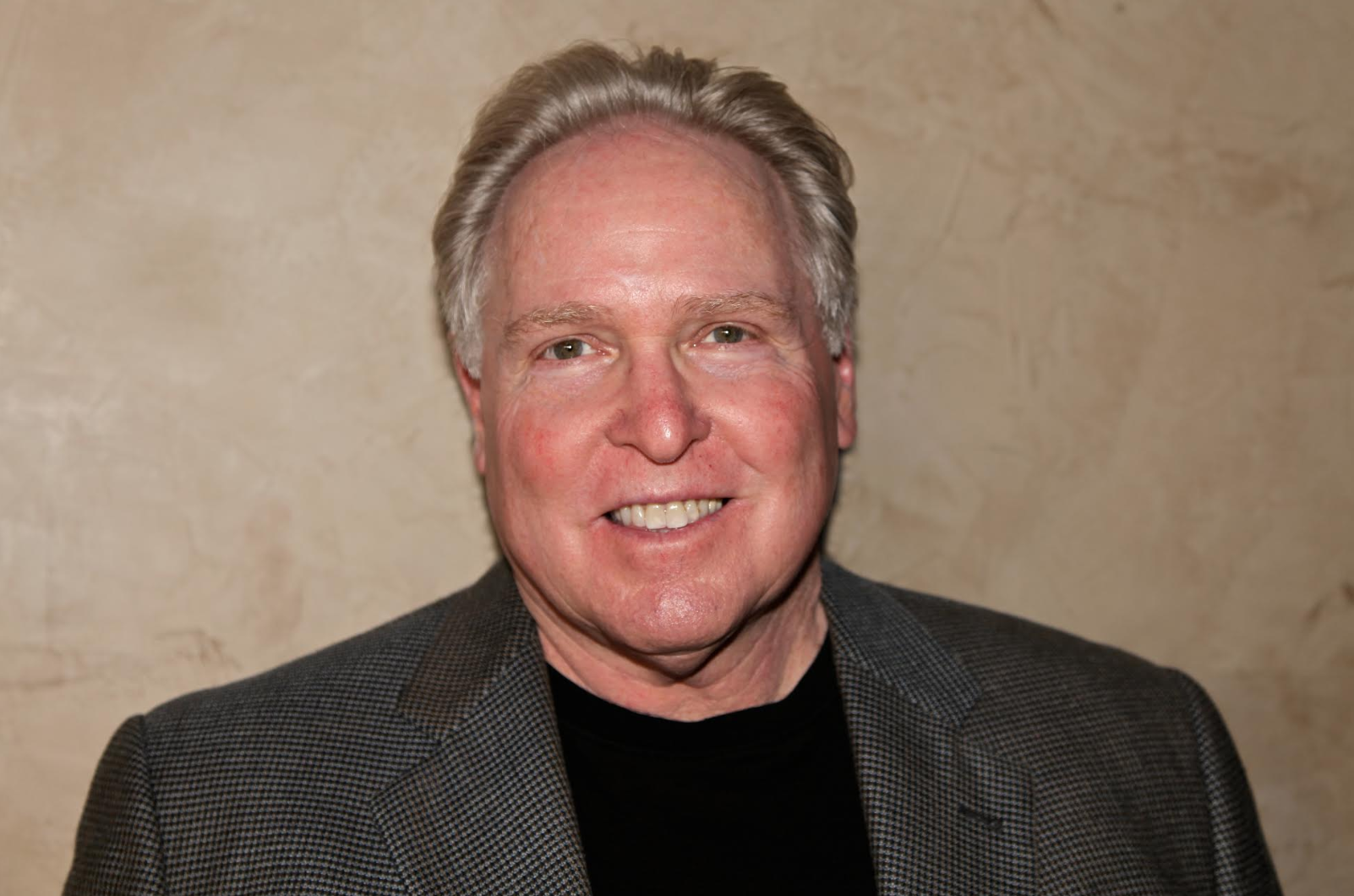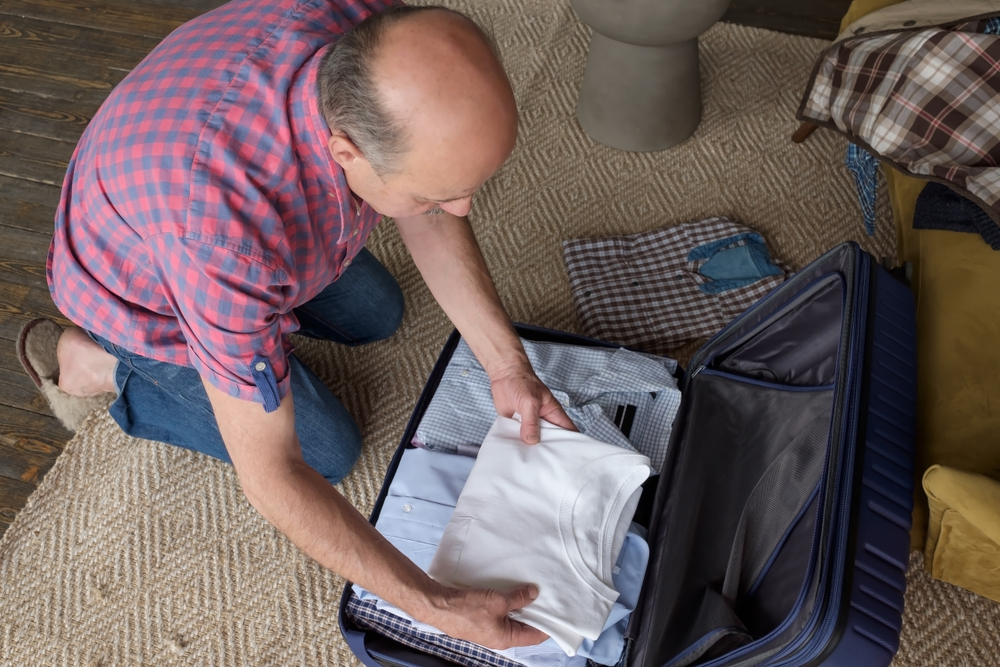It started as an expression I used with clients who were dying. Having gained their trust, I’d ask, “Have you packed your bags?” to gently open the conversation about what they needed to do to make peace with their lives coming to an end. Working with these kinds of clients inspired me to look in the mirror and ask, “What would I need to do to find greater peace?”
As sad and uncomfortable as it was to imagine my own death, the benefits of proactively addressing the possibility, and/or inevitability, that I was going to die were considerable. Coming to terms with my own demise, even in small increments as I’ve gotten older, has helped me set priorities, make good decisions, take purposeful action, and live a fuller life. Given that all of us may now be only a tiny droplet away from contracting the COVID-19 virus, it is probably as good a time as any for us to accept that we’re not bulletproof. And then ask ourselves an intimately personal question, “Have I packed my bags?” and a socially responsible one, “What am I willing to sacrifice in order to protect my loved ones and community?”
Living under the foreboding cloud of a global pandemic this past month, and listening to daily death tolls on TV (the way we did during Vietnam, 9/11, and the many mass shootings we’ve endured) is forcing millions of us to at least consider the possibility of dying. Or, of losing someone we love. Searching for ways of making peace with life’s tenuous and random nature, no matter our age or state of health, benefits us in a variety of ways. Summoning the courage and strength to face life’s harshest terms forces us to grow and ripen as human beings. Becoming the more confident, less frightened version of ourselves, we say and do things that, however difficult, improve the quality of our lives, protect our loved ones, and save the lives of people we don’t even know.
As author and therapist Robert Strock so eloquently put it, “It is paradoxical that as we feel our fear, terror, or complete sense of loss, it converts naturally into more courage, strength, and resiliency. People who have unpacked their bags, rather than run away from their fears, have shown us the more we can look straight into the heart of our own death, the clearer we can see what we need to be more alive, inspired, and fulfilled.”
Those who choose instead to hide, deny, repress, and bury their fears in self-deceit and false hope will undoubtedly find a home in our death-denying culture. Since life is life, and loss is a natural part of it, the debt of avoidance eventually comes due. Last-ditch attempts to subdue fear by projecting it onto others, accusing them of “overreacting to a hoax,” has dire real-world consequences. As our nation watches, mayors and governors search desperately for masks, hospital rooms, and ventilators, while doctors and nurses put their lives on the line trying to contain the community spread. Millions of us are sent home to shelter in place as we watch countless thousands fall ill die and die in Spain and Italy.
As threats like the COVID-19 virus draw ever closer, and we realize we’re not immune, we and others begin to pay the price. Looking at the disparity in leadership across our great nation where some elected officials are instituting heroic measures to save lives, while others are dragging their feet behind an “It cannot happen to us” campaign of reckless denial, is deeply disturbing. One wonders what will have to happen for people to wake up from their death-denying, virus-denying emotional comas and begin to take action. One wonders!
I thank the courageous clients I’ve had who were dying and wanted my help exploring the “pack your bags” alternative to the “head in the sand” approach. They have been my teachers and a source of great inspiration. Nearing his death from ALS, a 60-year-old client named Steve said it best when he told me, “Ken, I don’t want to go out kicking and screaming—or subject my family to that. I want your help putting my house in order so I can die well.”
Whether you’re healthy and reading this to be proactive, or you or someone you love is dying, here are some guidelines for packing your bags, making peace with life’s terms, and leaving a legacy of love:
- Take a few sacred moments to show yourself compassion, kindness, love, and understanding. You may never have had to face anything as difficult as this, and you may have suffered through quite an ordeal to get to this point. So speak kindly and with great patience to yourself—and give yourself permission to feel exactly this way.
- Take the time to reflect on exactly what would help you be at peace. What needs to be said or done to bring your life, or the life of your loved one, to the kind of conclusion you desire? What are the most calming/peace enhancing parts of facing your death? The scariest? Write these things down if that helps, and then figure out who can begin to assist you in making some of these things happen.
- Find at least one person (a trusted confidant) who could help you further explore how you’re feeling/what you would like to have happen/or not happen. Talk with this person in order to get even greater clarity and gather your strength to make it happen. You might also wish to solicit support and sustenance from someone who shares your faith, view of life, and spiritual and/or religious beliefs.
- Give yourself permission to express whatever you may be feeling about dying. Do not allow self-criticism, shame, embarrassment, guilt, judgment, or fear to silence you. You have every right to feel the way you do and vent these emotions, especially if they lead you to even stronger, more constructive feelings.
- Make a list of what you want and don’t want to say and do. These are things that will lighten your heart, give you a greater sense of peace, and assure you that you’ve said and done what you wanted with the people you love. It will also help you take care of unfinished business and leave things as you’d like them to be.
- Set your mind and heart to leave a legacy of love. Show gratitude for all the good in your life by paying it forward to those who will live on after you pass. Show them your love by putting your affairs in order; expressing your full measure of kindness, forgiveness, encouragement, and gratitude; and doing things to leave the world a better, safer place.
- Allow yourself to imagine what might happen when you die. Tell your loved ones what you want and don’t want from each of them during your final days. Express your hopes about how they will carry on in your absence. Say what you would want your memorial service to be like in a perfect world. And leave your loved ones with a message of love and gratitude. Be specific.
- Do your best to ready yourself for, and make peace with, death. Surround yourself with who and whatever will ease and enhance your transition. Try to exert a gentle preference for thoughts, music, rituals, moments of silence, and calm assurances that bring feelings of peace, reconnection, reunion, and spiritual continuity rather than fear, pain, bitterness, disconnection, and suffering.
- It’s okay to let go. The saying “Let go and let God” has brought peace to millions of people. Regardless of how you feel about God or whether you subscribe to a religion, we must all eventually surrender the illusion that we can personally control the forces that regulate birth and death. We’re born and die into the mysteries of life. And it is into those mysteries we shall go. Our faith may represent our deepest hopes, wishes, and beliefs, but sooner or later, we’re forced to come to terms with . . . life’s terms.
- Coming out of denial is an ongoing process. Don’t limit yourself by thinking that this is something that can be done in a day, week, or month. Facing into, rather than denying, issues like death and life-threatening viruses can take us into deeper levels of courageous living and awareness.
This is an unprecedented moment of truth for each of us as individuals and as a society. In the old normal, nightly news reports of cancer, crime, conflict, and tragedy reminded us how random life can be—and that bad things do happen! Turning off the TV, assured it wasn’t us or someone we love, we go about our business. Then, one day we’re the ones on TV talking about someone we love who was in a terrible accident, received a troubling diagnosis, or was infected with and/or died from a “novel” virus. When it’s us, or someone we care about, our mind-set for denial is rendered ineffective, and we’re left defenseless against our own fears. Grasping for relief, we may go in search of a quick fix that allows us to slip back into a state of denial. Or we may awaken to a state of personal and social responsibility, taking action to reduce the risks of this life-threatening virus and help the people in your community until we find a cure.
Told to stay at home’ socially distance from our family, friends, co-workers, and neighbors; and obsessively wash our hands, we either acknowledge that there’s a direct threat to our health and safety or we tell ourselves that it’s okay to go about our business. We may feel helpless and overwhelmed, searching for “grown-up in the room” leadership from elected officials, doctors, and hospitals, which leaves many of us wondering whom we can trust. Feeling understandably vulnerable, helpless, and humble, and imagining (perhaps for the first time) what we’d do if this was, in fact, our final act, we live in a state of uncertainty. Witnessing a shutdown of our economy, collapse of the stock market, stratospheric rise in unemployment, and medical professionals across our nation pleading for life-saving ventilators leaves many of us wondering if our country has the will and/or capacity to do what’s necessary to flatten the curve.
COVID-19 is triggering widespread fear and selfless acts of heroism. It is also affording many of us with “just in case” opportunities to think about getting our bags packed. Taking actions like purchasing life insurance, getting power of attorney forms notarized, and completing an advance directive and estate plan, invite us to overcome long-held fears and do what’s necessary . . . and ensure that the people and things we cherish will not be left in a state of chaos should something happen to us. Knowing that life will go on after we’re gone, that we’ve acted responsibly and with integrity, and that we’ve left a legacy of love, allows us to be at peace as we live out the rest of our lives.
Let’s all continue to work together in defeating this virus and hastening the restoration of safety in our world. You have my heartfelt congratulations if you’ve taken this opportunity to break free of denial, have begun packing your bags, and are taking personal/social responsibility during these trying times. May you return to your family, friends, neighbors, and co-workers when it’s safe to do so with a lighter heart; a heightened sense of awareness about what really matters; and a wealth of newfound peace, freedom, and joy.
Follow us here and subscribe here for all the latest news on how you can keep Thriving.
Stay up to date or catch-up on all our podcasts with Arianna Huffington here.


